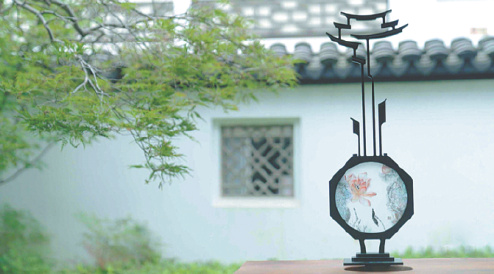

"Local people can recognize direction of future development, and insist on their cause in spite of the difficulties they may meet. Their toughness and spirit of exploration moved me very much," says Liu.
President Xi Jinping, in 2005, then secretary of the Zhejiang Provincial Committee of the Communist Party of China, commended Anji's efforts to protect the environment and proposed the concept that "lucid waters and lush mountains are invaluable assets" when he visited the county. It would go on to become an important guideline for ongoing development in China.
From Liu's perspective, it's not a coincidence that the people around the lake were the first to hear Xi's concept, and to enjoy the benefits of ecological protection. "Since they were among the first to suffer from environmental deterioration, they had to be one of the first groups of people to change the path of their region's development. And it was the quality of character among the local people that ensured they could reap the rewards of the changes," says Liu.
"The people are hardworking and wise enough to create a better hometown for themselves," says Chen Lin, one of the directors of the documentary, adding that as the water quality has improved, their lives have entered a happy new stage.
Chen is impressed by the story of Yao Jianping, a master of suxiu, or Su embroidery, a national-level intangible cultural heritage originating in Suzhou, Jiangsu province, who was also featured in the documentary.
Yao has strived to become a master of the craft, which she began learning as a child. In 1990, not long after her child was born, she went to live in the home of her teacher to improve her skills. For four years, she only went back home one day a month, and studied the craft from day to night.
The hard work paid off. Yao has become a national-level inheritor of Su embroidery, and many of her works have been presented as national gifts to leaders from other countries. She still embroiders for over four hours every day to maintain her touch and skill.